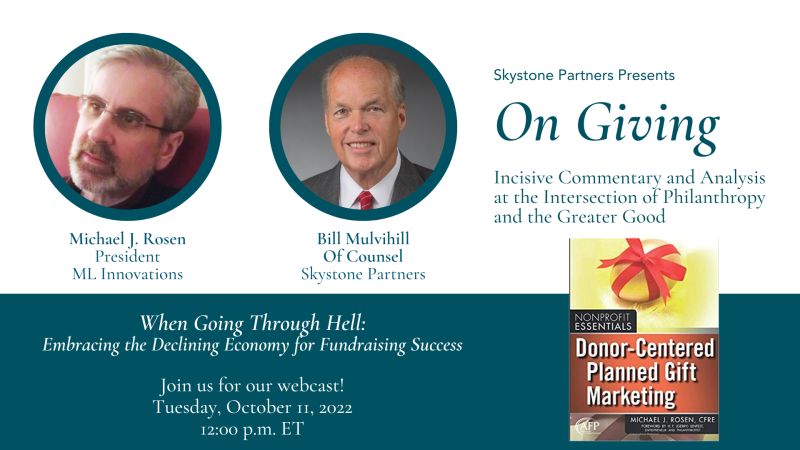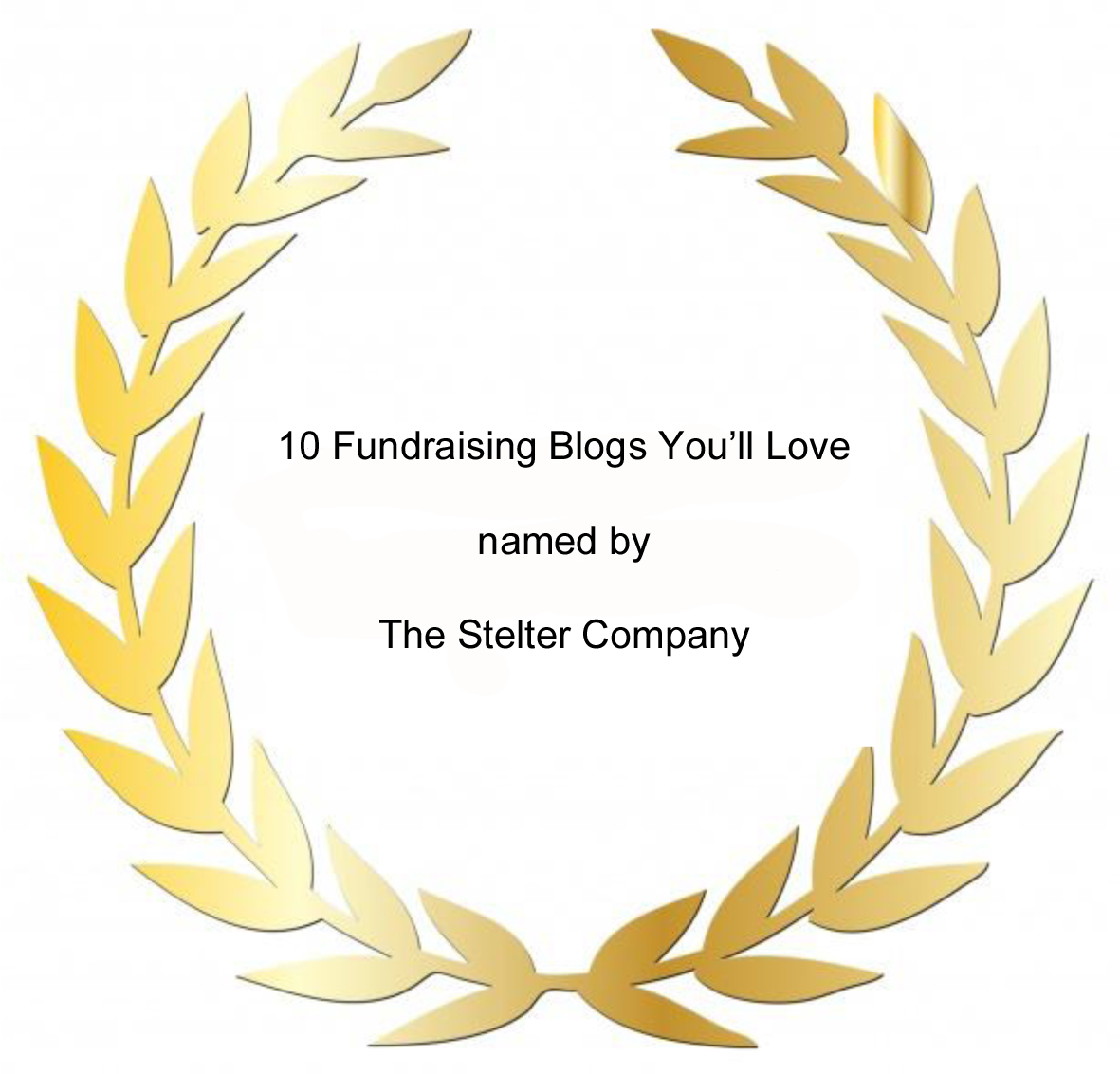The above quote from Sir Winston Churchill is great advice for our time as we strive to cope with:
- Persistent inflation,
- Current or looming recession,
- Stock Market in Bear Market territory,
- Lingering global pandemic,
- Tight labor market,
- Tension over returning to the office,
- War, current and potential,
- Political uncertainty,
- Natural disasters,
- And other challenges.
Now, I’m teaming up with highly-regarded fundraising consultants Skystone Partners to provide insights into the current philanthropic environment, helpful tips for nonprofit organization, and answers to your questions. Join host Elizabeth Kohler Knuppel, Skystone CEO; Bill Mulvihill, of Counsel at Skystone; and me on Tuesday, Oct. 11, 2022, at noon (EDT) for a lively conversation.
You can ask your questions during the during the live webcast or pose them as a comment below.

During a time of economic uncertainty — and even decline — what can nonprofits do to impactfully fulfill their missions? How should organizations react and adjust to the shifting landscape of in-person and remote-work, largely brought upon by the pandemic? How do these changes affect fundraising strategy and activities? What are the opportunities?
For in-depth discussion around these important questions and others that seem to be at play all at once, I invite you to register for this FREE program now by clicking here.
Read more: “If You’re Going Through Hell, Keep Going.”In a March 2022 post, I announced that I was returning to the blogging and webinar scene after a lengthy series of complications due to my ongoing struggle with cancer. At that time, I celebrated my return by inviting you to my Spring webcast with Skystone Partners. Unfortunately, shortly after that program, my health once again took a turn for the worse. Now, my professional life is limited, and I choose projects carefully. It’s why I haven’t been blogging lately. However, when Liz invited me to join her this month, I couldn’t say no. The subject is too important, and I know when Liz, Bill, and I put our heads together, you’ll get something of real value.
If you missed my previous program for the Skystone “On Giving” series or you want to watch other programs, including our October discussion, I encourage you to visit Skystone’s YouTube Channel by clicking here.
Just so you know, my blogging in the coming months will continue to be limited as I continue to march through my own hell. As I’ve written before, I’ve been living with an exceedingly rare aand life-threatening cancer since 2014. I have Pseudomyxoma Peritonei. If you’re interested in reading about journey, you can search the term on this blog site. Anyway, I’ve been receiving excellent care in Philadelphia and Pittsburgh. Unfortunately, I’ve been dealing with a series of complications related to my cancer, in the past serveral months especially. I’m still dealing with serious issues and will be for the foreseeable future. So, you won’t be seeing as much of me as in the past.
If you’re one of the many people who have contacted me or continued to hold me in your thoughts and prayers over the past several months, I thank you as I continue to move forward buoyed by your support.
That’s what Michael Rosen says… What do you say?











 While interest rates have moved slightly higher so far this year, they have not moved enough to warrant an upward revision to the ACGA’s return assumption, and therefore, the Board decided to not change the suggested maximum payout rates. The Board continues to monitor market and economic conditions and will make changes as conditions warrant.
While interest rates have moved slightly higher so far this year, they have not moved enough to warrant an upward revision to the ACGA’s return assumption, and therefore, the Board decided to not change the suggested maximum payout rates. The Board continues to monitor market and economic conditions and will make changes as conditions warrant.


 Saint (Mother) Teresa of Calcutta understood that. On the wall of one of her homes for children in India, someone had hung a poem by Dr. Kent M. Keith. He wrote the poem in 1968 and revised it in 2001. During his long career, Keith has served as a YMCA executive, President of two private universities, and CEO of two nonprofit organizations. He understands the pressures faced by those who work in the nonprofit sector. He also understands our need for inspiration.
Saint (Mother) Teresa of Calcutta understood that. On the wall of one of her homes for children in India, someone had hung a poem by Dr. Kent M. Keith. He wrote the poem in 1968 and revised it in 2001. During his long career, Keith has served as a YMCA executive, President of two private universities, and CEO of two nonprofit organizations. He understands the pressures faced by those who work in the nonprofit sector. He also understands our need for inspiration. While Davis and Sassenberg have identified some legitimate concerns that nonprofit employees have, it is nevertheless unfortunate that this is leading to growing interest in unionization when there is a better solution: more effective management.
While Davis and Sassenberg have identified some legitimate concerns that nonprofit employees have, it is nevertheless unfortunate that this is leading to growing interest in unionization when there is a better solution: more effective management.